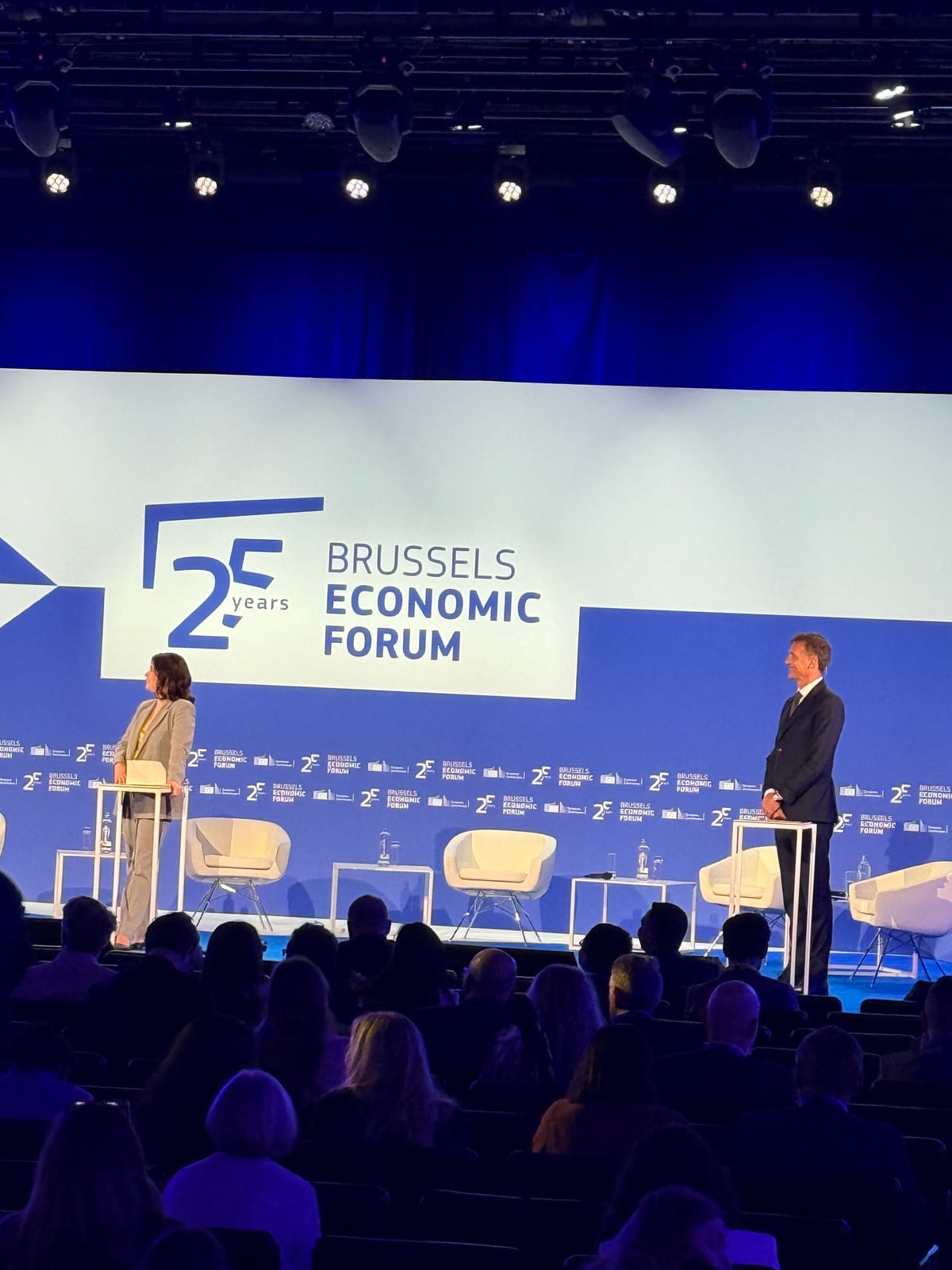Donald Trump has asserted repeatedly over the years that Europe has “treated the US unfairly” and has been “laughing at us” when it comes to trade. He uses this as a rationale for the 50% tariff threat he announced on the EU today.
From what I’ve been able to observe, Trump’s view of Europe’s attitudes about the US are not accurate. In fact, most European officials and academics appear to believe that the US economy (pre-Trump II) has thrived in the age of international trade in ways that Europe can only envy.
In fact, much of the EU Commission’s focus on economic policy over the last decade has been about finding ways for Europe to advance its economy – particularly the tech sector -so that it can begin to compete with American companies. There is something of an inferiority complex that the Europeans have developed on this subject, as their efforts to compete in tech on a large scale have yielded few results.
I attended the recent Brussels Economic Forum this week, which reinforced this theme. The forum hosted speakers from the EU, national governments, European businesses, and academia.
The focus of the forum was on how the rapid changes the world economic order has experienced, particularly with Trump’s election and his disruption of the world economic order. Europe is struggling with how to deal with this.
Almost all of the speakers pointed to the American digital economy as a model for Europe to emulate. The consensus among was that Europe has been falling behind the US and China economically. They are desperate to find ways to catch up.
Many discussions at the forum were about Europe finding ways to emulate Silicon Valley’s model for attracting capital to scale promising European startups. Some speakers also discussed how to stimulate consumer demand in Europe so that it would be more of an economic driver like it is in the US. Nobody took the position that Europe has been doing better than the US economically, much less any sort of arrogance about European economic successes. Most were perplexed about why the US now seeks to withdraw from an international system that has benefited us so much.
There seemed to be genuine sadness and concern about the changes to US policy over the last 100 days or so. While a few speakers pointed out that Trump’s policies did not seem to be working for the US, this was not to gloat. Rather, it was to make the point that Europe should not follow down the same path. No speaker expressed the view that America’s new policies on trade would be positive for Europe, although a few made that point that actions alienating scientists and technology academics could provide an opportunity for Europe to attract talent. Nor was anyone advocating taking an aggressive stance against American policies.
It's quite ironic that, even though the consensus among economists is that the US economy has been performing better than the rest of the world, at least before Trump came back to power, yet Trump continues to point to US weaknesses to justify his tariff policy. In essence, Trump has a view about the US economy that borders on low self-esteem, but is not supported by objective evidence or data. At the same time, economic policymakers and academics in Europe are pessimistic about their economic prospects, but this appears to be more supported by the evidence.
It will be interesting to see how the Europeans approach negotiations with the US over Trump’s tariffs in light of the diametrically opposed views on the relative economic conditions both face. Certainly, they are even less inclined to be laughing now.
Beyond the result of these negotiations, Trump’s views about the US’s ability to compete within the rules of the long-standing world economic order seem to be counter to the historic optimism that Americans have had about our country. Americans have never had low self-esteem or lack of confidence about our ability to compete in the world. A reversal of this attitude could have long-term impacts beyond the negotiations over tariffs.

Member discussion: